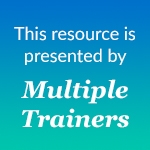

Search Results: relationships
-
In order to bring in more nonviolence into the world, we need to take our own needs seriously and recognize that no amount of seeing someone’s innocence would mean putting up with more of their harmful behavior. We need to disentangle compassion towards another from the willingness to tolerate more harmful actions. At times this means finding enough self-love, support, or clarity, to take decisive action. Read on for more.
-
Little negative impacts can become big when left unattended. Watch for things like using a sharp tone, choosing not to share something, going along with something when you don’t really want to, trying to convince your partner, impulsively turning away, shrinking, losing access to parts of yourself, hiding, daydreaming about a different life, and judgmental thoughts. Instead, shift the dynamic: take responsibility, provide empathy, and commit to change.
-
Relationship repair means building connection and care after disconnect and unmet needs. It requires intention to connect and take responsibility for your behavior by naming what didn’t work, offering empathy, and making a plan to do something differently next time. When you have enough empathy to find care and curiosity for them, reflect the other person's observation, thoughts, feelings, needs and requests. Focus on this more than on details of the event.
-
Please listen as we discuss and grapple with the issues of growing polarization in our world, political structures and personal relationships.
-
When working to repair a relationship after conflict, and after reaching mutual care and understanding, you’re more likely to prevent future disconnection in similar situations by coming to clear, specific, and actionable agreements. Ensure requests for agreements come from a negotiable needs-based dialogue. Clarify specifics and plan to revisit agreements to assess their effectiveness.
-
-
-
Miki Kashtan helps a mother restore connection with her daughter after a painful conflict.
-
-
What would happen if you considered that time is a concept, and that it doesn't rule your life? What would it mean to make all choices based on needs and not on time? Do you obey the external rhythm of the clock over and above the internal rhythm of your life energy? This is an invitation into more responsibility, awareness, honesty, choice and freedom.
-
Integrating a full living involves grief/mourning and gratitude. Here we'll more deeply integrate inner and outer dimensions of gratitude and grief. In any experience there's the outer aspect, an event that occurs in life. And there's the inner response to the outer event. When we judge the outer positively or negatively we're in tension or resistance to our experience. Here we'll explore a more integrated mode of experiencing.
-
With practice we can prevent reactivity from overtaking and harming: notice signs of reactivity, bring compassion to it, see reactivity as the misperception of threat and a distortion of what's happening, plus engage and pursue connection and the clarity to weaken reactive impulses. In taking responsibility like this overtime, you can live from your values and from care. And life can get easier for you and others around you.
-
Notice situations where you're attending to another and giving up on your needs with resentment or a sense of submitting. You can also watch for “shoulds,” obligation, and black-and-white thinking around the support you offer. Is there a sense that if you don't carry out a particular action something bad will happen? If so, identify the needs at hand and brainstorm a variety of strategies to meet them.
-
Eric offers us a list of some of his favorite books, articles, and videos related to building successful relationships.
-
Explore what blocks us from speaking truth and how honesty builds trust and growth.
-
How do you repair a relationship when your words or actions unintentionally impact another in a negative way? And what keeps you from apologizing? Join Lore to explore – and answer – these questions and more!
-
When deciding if someone crossed your boundaries and how to respond, you may get conflicting opinions on it. These opinions can be coarse attempts to manage life with rules about what should(n’t) happen. Instead, so that you can find where you want to invest your energy, ask yourself questions that reveal what for you is truly in integrity, nourishing, connects to your heart, and deepens self understanding. Read on for examples.
-
- Integrate the underlying principles of NVC into your daily life
- Create a daily practice of self empathy and connecting to needs
- Strengthen your own personalized set of NVC skills
- Increase your sense of power in the world
- Deepen connection with yourself and those in your life
-
Kelly shares how freedom and autonomy create strong, healthy, and loving relationships.
-
- Celebrate and nurture your relationship to the Earth — and each other!
- Explore your connections to family, partner, work, nature, self and more
- Discover new ways to grow in community and work together to make this world a better place
- Engage and immerse yourself in NVC while making new friends!

Quick Links
Subscription Preferences
Stay In Touch!
Looking for ways to keep up with NVC Academy news, get special offers, free resources, or words of inspiration? Here are five ways to stay engaged:















